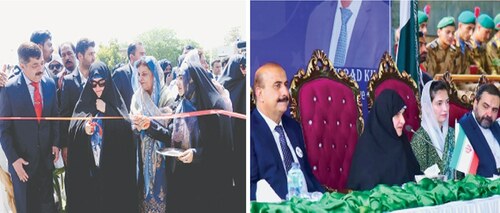ISLAMABAD: The World Health Organisation (WHO) has issued a Ramazan advisory suggested that the month provides an opportunity dietary changes that can be sustained long term, and is the best time to quit smoking and change unhealthy lifestyle habits.
“Fasting in this Ramazan 2018 is expected to last over 16 hours on most days, making it all the more important to look after your health. There is ample evidence to suggest that fasting can have positive effects on your health.
“While fasting is obligatory for all healthy Muslims, there are exemptions for those who are ill or who’s health could be affected by fasting, for example, pregnant or breastfeeding women and people with chronic illnesses such diabetes,” it says.
However, the advisory says, Ramazan may also cause weight gain, and people should ensure they get the right amount of energy from food and drinks to maintain their balance of energy, which also depends on activity.
“Drink plenty of fluids, as well as consuming fluid-rich foods, such as fruit, vegetables, soups and stews.
“High temperatures can also make you sweat more, so it is important to drink fluids to replace what you lose during the day and to start the next day of fasting well hydrated (at least 10 glasses).”
The advisory warns against consuming too much salt, since it simulates thirst, as well as caffeine, which is a diuretic.
Iftar and sehri
People should have plenty of fluids for iftar, as well as low fat, fluid-rich foods and foods containing some natural sugars for energy. Water provides hydration without any extra calories or added sugars.
Drinks based on milk and fruit provide some natural sugars and nutrients – these are also good to break fasts – but avoid drinks with added sugars at iftar, as these can have high calorie content.
Incorporate plenty of vegetables to provide vital vitamins and nutrients, the advisory said.
For sehri, it suggests plenty of fluids and fluid-rich foods to make sure you are well hydrated for the day ahead and go for starchy foods for energy, choosing high fibre or wholegrain varieties where possible as these tend to be digested more slowly.
Rice, high-fibre breakfast cereals, oats or muesli (usually consumed with milk or yogurt), provide plenty of fibre, vitamins and minerals.
Fasting with diabetes
People who are ill or have medical conditions do not have to fast. Those suffering from Type I diabetes are generally advised not to fast as it puts them at higher risk of hypoglycaemia and dehydration.
People who have their diabetes under control may be able fast. However, their doctors may require them to change their medication to help them take tablets outside fasting hours.
Those who need insulin to control their diabetes are generally advised not to fast. However, if they choose to, they must consult a doctor before Ramazan to make sure that they are able to look after themselves properly.
Diabetics who choose to fast are advised to check their blood glucose levels more often than they normally would, and to avoid sweet or fatty foods after the fast ends.
Fasting with severe migraines
People with uncontrolled migraines should not fast, but managing migraines is possible with the right medicine and certain lifestyle changes.
Fasting with hypertension
People with well-controlled high blood pressure can fast, although their doctors may advise a change in medicine for them.
Someone with low blood pressure who is otherwise healthy may fast, but they must ensure they drink enough fluids and have enough salt.
Medical evidence shows that fasting while pregnant or breastfeeding is not a good idea.
If a pregnant or breastfeeding mother feels strong and healthy enough to fast, she may do so, but if she does not Islamic law permits her not to, the advisory said.
Published in Dawn, May 23rd, 2018













































Dear visitor, the comments section is undergoing an overhaul and will return soon.